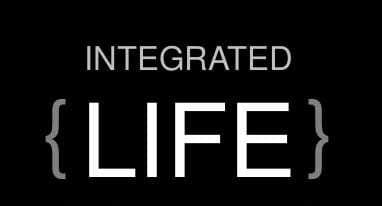 I was talking to one of our pastoral staff members from our church the other day about the church’s initiative toward missional communities: small groups of people who know each other from work or their neighborhood, gathered to do life and mission together. The idea is that these groups would, in part, be intentionally in prayer for those around them who don’t know the Lord, and would be inviting others into their lives in hopes of engaging in spiritual conversations and interactions. My pastor friend was sharing with me how difficult it is for people to grasp this concept, and engage in missional communities. For many their barrier is time. They resist because they believe adding ministry means adding one more thing to their already busy lives.
I was talking to one of our pastoral staff members from our church the other day about the church’s initiative toward missional communities: small groups of people who know each other from work or their neighborhood, gathered to do life and mission together. The idea is that these groups would, in part, be intentionally in prayer for those around them who don’t know the Lord, and would be inviting others into their lives in hopes of engaging in spiritual conversations and interactions. My pastor friend was sharing with me how difficult it is for people to grasp this concept, and engage in missional communities. For many their barrier is time. They resist because they believe adding ministry means adding one more thing to their already busy lives.
As I was thinking about that problem, it dawned on me that the root issue is not that people don’t have enough time, but that they have dis-integrated lives. Their lives are compartmentalized. If life is a chest of drawers, each aspect of life is a separate drawer in the chest: they have their work drawer, their family drawer, their hobby drawer, and their ministry drawer. Maybe there are others. They think they can only exist in one drawer at any given point in time. And so, when asked to add another drawer to an already extended life, the request seems overwhelming. After all, they spend so much time in each of these drawers already; how can they carve out space in their busy lives for one more drawer?
It’s perfectly normal for people like me to think this way, because that’s how we were educated. Our faith had nothing to do with what we called “school.” It was a separate thing, taught in a separate place. “School” was its own compartment, its own drawer, separate from home and (maybe, if we attended) church. Within the school drawer, there were other, distinct drawers: the chemistry drawer, the English drawer, the history drawer, the Spanish drawer, and the like. By walking through our day after day, our lives in dis-integrated segments, we learned that English and history, math and science had very little relation to each other, and that our faith was completely separated from all that stuff. Over time, we became dis-integrated, disconnected thinkers.
The problem is this isn’t how God created the world. All of His creation is interconnected and relates one to another. The language, music, art, science, and worldview of a culture are all inextricably interrelated. Biological ecosystems work together in amazingly intricate ways to sustain life. And, God has something to say about all of it. He created all of it. The only way we can truly understand anything, whether it be a culture, or a system, or a human being, is to understand how it all fits together, and how God, the giver of revelation, speaks into it.
Thinking about these things made me grateful and even more convicted of the importance of Christian education, and teaching from a biblical worldview, the integration of faith and learning. At our school, kids are taught that language and history, and music and film speak to each other, and are connected together. They explore God’s perspective as revealed through His Word and His creation, and what He has to say about everything they’re exploring. In short, they learn to think in integrated ways. In their chest, all their drawers are open, and their lives spill from one drawer to another in a continuous flow.
And, they learn to live integrated lives. I’ve watched students leave this school year after year. When they live on mission for the gospel, it’s not just one more thing added to their lives. It becomes their lives. It becomes how they work, how they raise their families, how they relate to their neighbors and their workspaces, how they speak, how they think, and how they live. Adding ministry to their lives is a concept without meaning. Their lives are their ministries. This is what we strive for, pray for, and work for, as parents and as a school: to cultivate whole people, thinking whole thoughts, living whole lives. The way we were created to be.
Leave a Reply